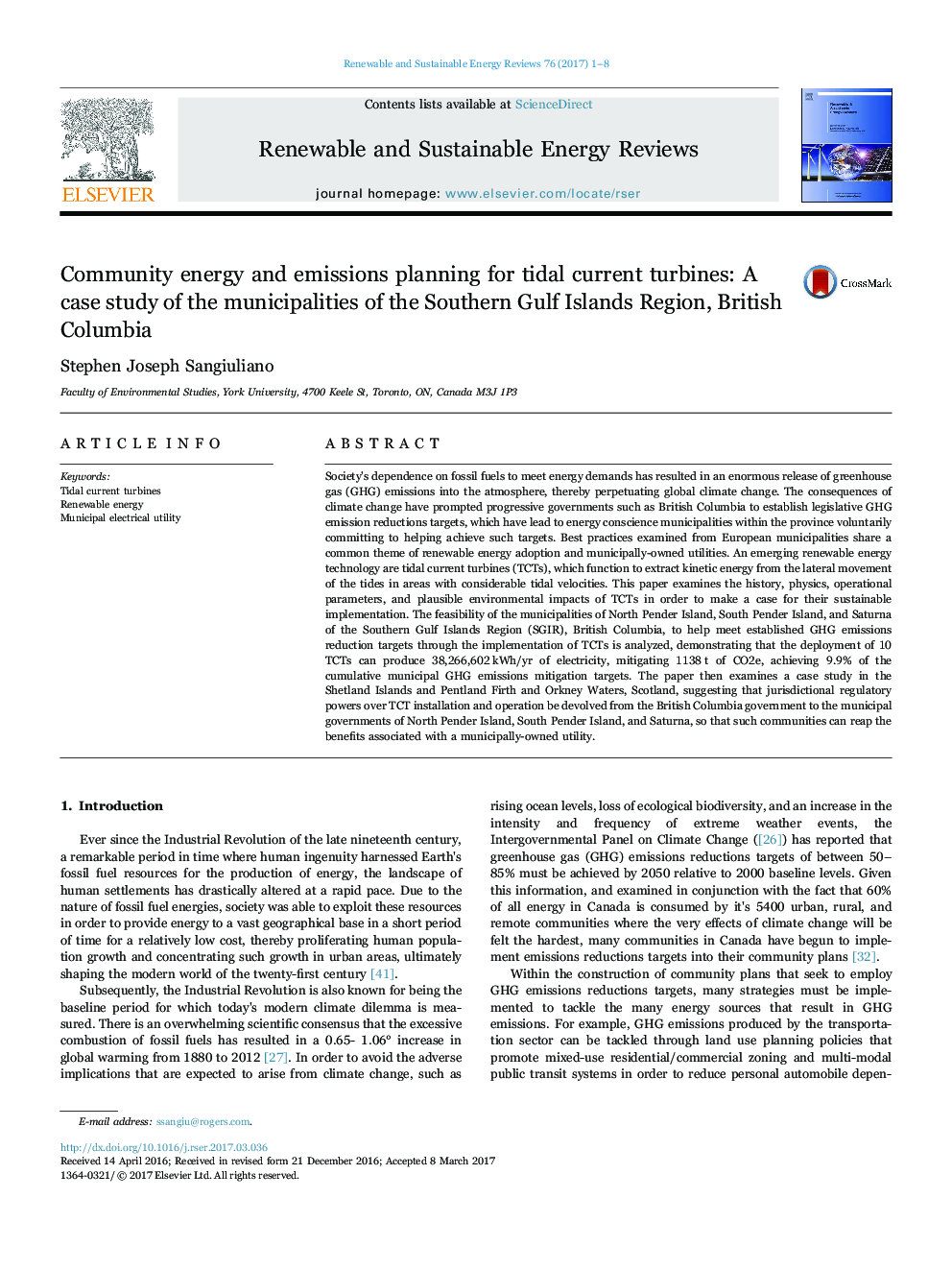| کد مقاله | کد نشریه | سال انتشار | مقاله انگلیسی | نسخه تمام متن |
|---|---|---|---|---|
| 5482138 | 1522310 | 2017 | 8 صفحه PDF | دانلود رایگان |
عنوان انگلیسی مقاله ISI
Community energy and emissions planning for tidal current turbines: A case study of the municipalities of the Southern Gulf Islands Region, British Columbia
ترجمه فارسی عنوان
برنامه ریزی انرژی و انتشار گازهای گلخانه ای برای توربین های فعلی جزر و مدی: یک مطالعه موردی از شهرداری های منطقه جزایر خلیج جنوبی، بریتیش کلمبیا
دانلود مقاله + سفارش ترجمه
دانلود مقاله ISI انگلیسی
رایگان برای ایرانیان
کلمات کلیدی
توربین فعلی جزر و مد، انرژی تجدید پذیر، برق شهری،
موضوعات مرتبط
مهندسی و علوم پایه
مهندسی انرژی
انرژی های تجدید پذیر، توسعه پایدار و محیط زیست
چکیده انگلیسی
Society's dependence on fossil fuels to meet energy demands has resulted in an enormous release of greenhouse gas (GHG) emissions into the atmosphere, thereby perpetuating global climate change. The consequences of climate change have prompted progressive governments such as British Columbia to establish legislative GHG emission reductions targets, which have lead to energy conscience municipalities within the province voluntarily committing to helping achieve such targets. Best practices examined from European municipalities share a common theme of renewable energy adoption and municipally-owned utilities. An emerging renewable energy technology are tidal current turbines (TCTs), which function to extract kinetic energy from the lateral movement of the tides in areas with considerable tidal velocities. This paper examines the history, physics, operational parameters, and plausible environmental impacts of TCTs in order to make a case for their sustainable implementation. The feasibility of the municipalities of North Pender Island, South Pender Island, and Saturna of the Southern Gulf Islands Region (SGIR), British Columbia, to help meet established GHG emissions reduction targets through the implementation of TCTs is analyzed, demonstrating that the deployment of 10 TCTs can produce 38,266,602Â kWh/yr of electricity, mitigating 1138Â t of CO2e, achieving 9.9% of the cumulative municipal GHG emissions mitigation targets. The paper then examines a case study in the Shetland Islands and Pentland Firth and Orkney Waters, Scotland, suggesting that jurisdictional regulatory powers over TCT installation and operation be devolved from the British Columbia government to the municipal governments of North Pender Island, South Pender Island, and Saturna, so that such communities can reap the benefits associated with a municipally-owned utility.
ناشر
Database: Elsevier - ScienceDirect (ساینس دایرکت)
Journal: Renewable and Sustainable Energy Reviews - Volume 76, September 2017, Pages 1-8
Journal: Renewable and Sustainable Energy Reviews - Volume 76, September 2017, Pages 1-8
نویسندگان
Stephen Joseph Sangiuliano,
